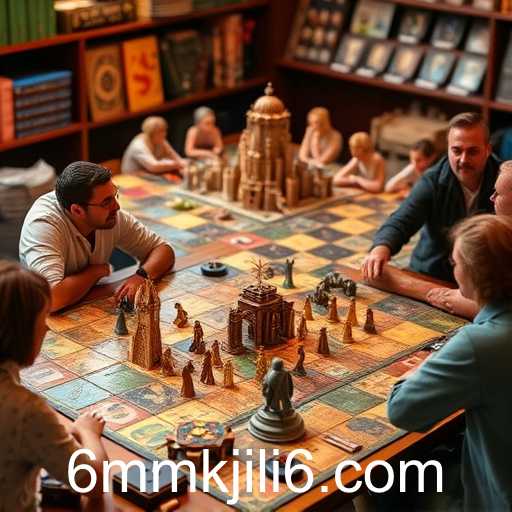Board games have long been a staple of communal entertainment, known for their ability to bring people together, stimulate the mind, and cultivate friendly competition. This classic form of gaming has witnessed a significant revival in recent years, evolving far beyond traditional favorites like Monopoly, Scrabble, and Clue. Today, a diverse and imaginative array of board games has captivated audiences worldwide. In this article, we'll explore the fascinating domain of board games, delving into their enduring appeal and the reasons behind their resurgence.
Historically, board games date back thousands of years, with ancient civilizations playing various sorts to amuse themselves, socialize, and even educate. The timeless nature of these games lies in their simplicity yet profound strategic complexity—qualities that echo the challenges and joys of real life. The surge in popularity in contemporary times can be largely attributed to a 'back to basics' movement where people increasingly crave tangible, offline experiences in our digitally-driven age.
One significant factor contributing to the rise in board game popularity is the diversity of themes and mechanics available today. Modern creators have pushed boundaries by designing intricate, story-driven games that cater to all interests—from strategic warfare and economic simulations to cooperative campaigns and fantasy adventures. Games such as Settlers of Catan, Carcassonne, and Pandemic not only introduce new play ecosystems but also foster a sense of community and shared objectives among players. Strong competition from digital entertainment has challenged board game designers to innovate, resulting in unique gameplay experiences that cannot be replicated in a digital format.
Additionally, board games have been recognized for their educational benefits. They encourage critical thinking, strategic planning, and teamwork. Educational establishments and families now often include board games as tools for learning, offering practical experiences in problem-solving and decision-making.
The rise of board game cafés and social gatherings dedicated to tabletop gaming also illustrates the renewed interest in face-to-face interactions and community engagements. These venues offer dedicated spaces where newcomers and aficionados alike can unwind and delve into the gaming culture, often stocked with mind-boggling varieties of board games to explore.
In conclusion, the board game landscape has expanded beyond its ancestral roots, growing into a myriad of themes that reflect both our history and modern society's complexities. They offer a unique form of escapism, camaraderie, and intellectual challenge that continues to enchant players of all generations. As long as the desire for shared, interactive experiences remains, board games will undoubtedly hold an essential place in the realm of entertainment.








